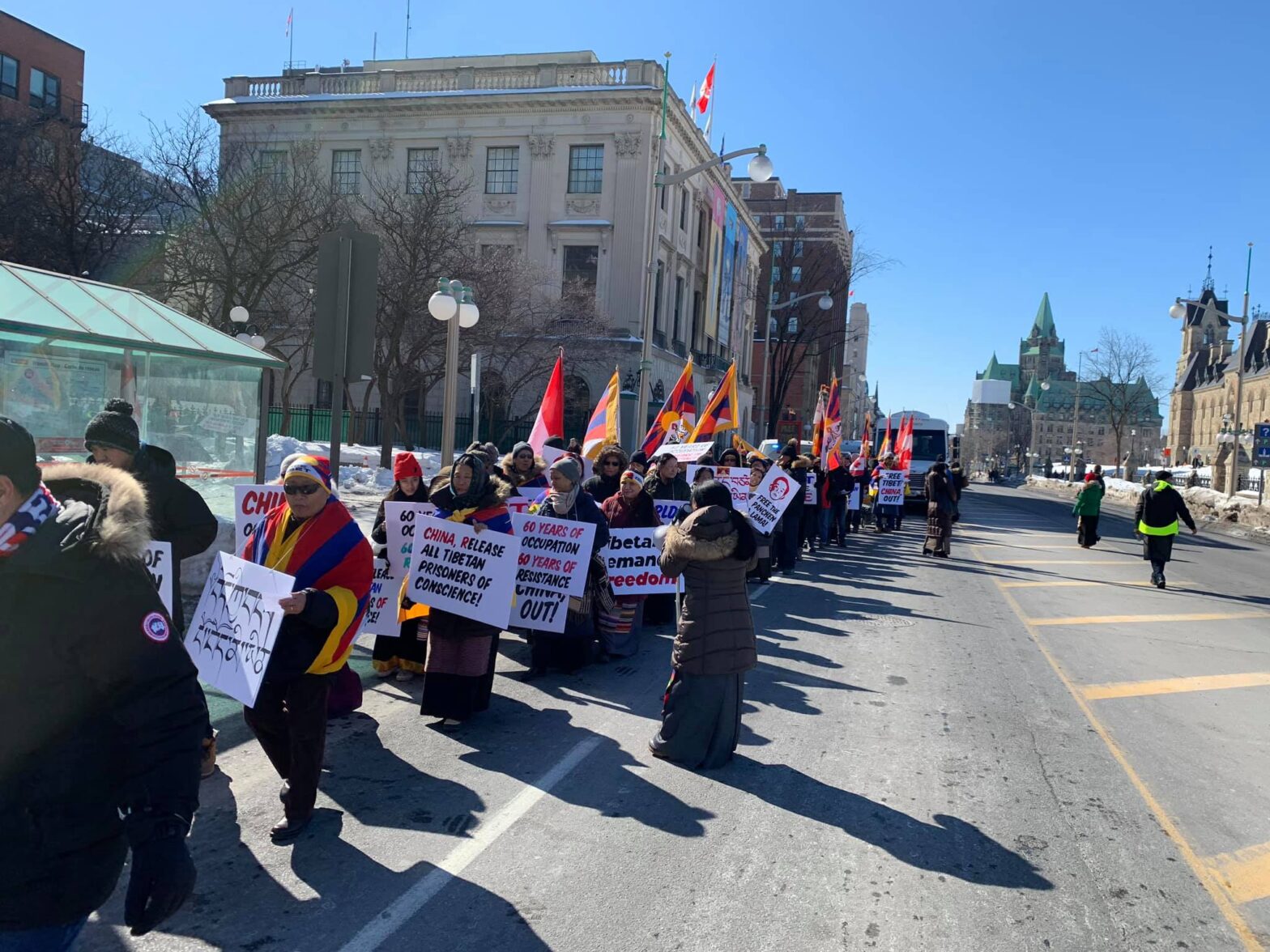Ottawa, December 10, 2018 – As the world celebrates International Human Rights Day,the human rights crisis in Tibet continues to escalate. On December 8, 2018 (a day before we wrote this), a Tibetan youth named Dugkho set himself ablaze in protest against Chinese repressions in Tibet and calling for return of His Holiness the Dalai Lama back to Tibet. This brings the total number of self-immolations since 1998 to 164. [1]
In a letter sent this week (below), the Canada Tibet Committee has appealed to Foreign Minister Chrystia Freeland to stand for human rights in Tibet: to appeal to Chinese authorities for the immediately release Tibetan language advocate Tashi Wangchuk, to encourage the Government of China to allow religious pilgrimage of His Holiness the Dalai Lama to holy Buddhist sites in Tibet and China, and to encourage the resumption of the Sino-Tibet dialogue.
“Two self-immolations of in the last one month in Tibet as an expression of resistance is a clear sign that China’s human rights record in Tibet has not improved,” said Sherap Therchin, Executive Director of the Canada Tibet Committee. “The Canadian people expect their government to defend and promote international human rights in Tibet and the first step is placing that commitment front and centre in the Canada-China bilateral relationship.”
This International Human Rights Day marks the 70thanniversary of the adoption of the Universal Declaration of Human Rights on December 10, 1948. The Declaration sets out universal values and a common standard of rights and freedoms to be enjoyed by all peoples and all nations.
[1] The self-immolations are documented at https://www.savetibet.org/resources/fact-sheets/self-immolations-by-tibetans/
December 10, 2018
Hon. Chrystia Freeland
Minister, Global Affairs Canada
125 Sussex Drive
Ottawa, ON K1A OG2
International Human Rights Day
Dear Minister Freeland,
In 1950, the same year that His Holiness the Dalai Lama assumed political power at the age of fifteen, the United Nations proclaimed International Human Rights Day as an annual reminder that basic rights and freedoms are the common concern of all Governments and all peoples. Less than two weeks later, on December 22, 1950, the Dalai Lama was forced to temporarily flee Tibet’s capital city Lhasa following threats against his safety made by invading Chinese forces.
Today, almost 68 years later, International Human Rights Day marks the 29th anniversary of the Nobel Peace Prize award to the Dalai Lama. In conferring this honour to His Holiness, the Nobel Committee said, “In the opinion of the committee, the Dalai Lama has come forward with constructive and forward looking proposals for the solution of international conflicts, human rights issues, and global environmental problems”.
Sadly, despite consistence adherence to such constructive proposals, there has been little progress towards resolving the conflict in Tibet. The Tibetan people continue to struggle under the yoke of Chinese oppression and, as he nears the age of 84, the Dalai Lama continues to live in exile in India while his dreams of returning home remain elusive.
Here in Canada, the national polity is often described in terms of shared common values including democracy, rule of law, and human rights. In our increasingly integrated world, however, such values are themselves at risk if they are not actively protected and promoted both here at home and in the countries where Canadians are engaged via family connections, cultural history, or economic relations.
The past year has been a difficult one for the Tibetan people: a Tibetan language advocate Tashi Wangchuk was sentenced for 5 years; a 23 year old Tibetan named Dhorbo set himself on fire calling for return of His Holiness the Dalai Lama to Tibet (marks the 163th self-immolations in Tibet); 30 Tibetans were detained for protesting the mining of a sacred mountain; monasteries and nunneries are governed by state-appointed committees that control monastic operations and policies and oversee religious teaching; and the State is developing a powerful weather modification system in Tibet, Asia’s biggest freshwater reserve but without any safeguards for negative impacts.Chen Quanguo, the architect of the mass detention and grid system surveillance in the East Turkistan (Xinjiang), tested this dystopian nightmare first in Tibet. Democratic countries increasingly opt to decrease overt support for the Tibetan cause in order to protect commercial interests and encourage Chinese investment.
Honorable Minister, we believe that Canada’s close economic relationship with China should be leveraged as an opportunity to promote human rights. We urge Canada to work together with like-minded governments in an effort to increase pressure on the Government of China to respect human rights in Tibet. We offer the following recommendations:
- Appeal to Chinese authorities to immediately release Tibetan language advocate Tashi Wangchuk
- Encourage the Government of China to allow the religious pilgrimage of His Holiness the Dalai Lama to Buddhist holy places including Wutai Shan;
- Encourage China to re-engage negotiations with envoys of His Holiness the Dalai Lama in accordance with the principles laid out in the Memorandum on Genuine Autonomy for the Tibetan People (2008) and its addendum (2010).
We the representatives of Tibetan community associations and non-governmental organizations across Canada appreciate Canada’s longstanding tradition of defending human rights in Tibet and around the world. We thank you for raising concerns about Tibet at the UN Human Rights council meeting, at the Universal Periodic Review of China, and during your meetings with Chinese counterparts. We remain committed to working with the Government of Canada to develop new and innovative ways to ensure that this tradition continues so that the Tibetan people may soon live in peace.
Sincerely,
Lobsang Tsewang, President
Ottawa Tibetan Community Association
Kunsang Shakpa, President
Tibetan Community Association of Quebec
Sonam Lankar, President
Canadian Tibetan Association of Ontario
Tenzin Gyurme, President
Tibetan Cultural Society of British Columbia
Tashi Rubling, President
Tibetan Association of Alberta
Sherap Therchin, Executive Director
Canada Tibet Committee

